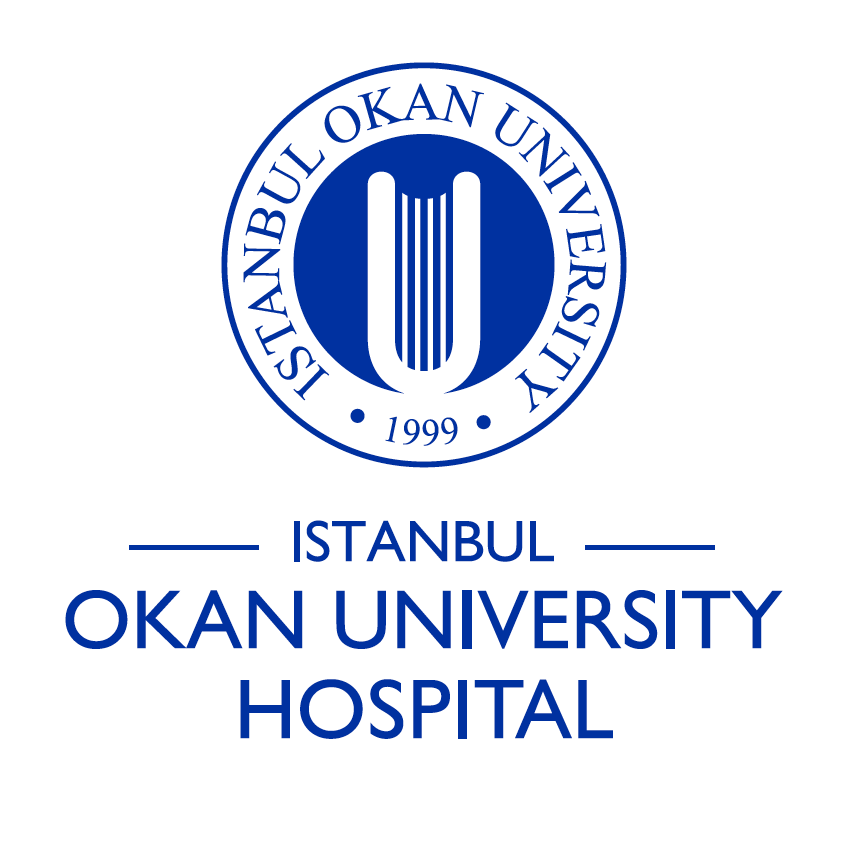Dreaming of Another Baby? What a Tubal Reversal in Turkey Really Costs

Thinking about growing your family after a tubal ligation? You're not alone. Many women find themselves reconsidering their decision for various reasons, and the good news is that fertility can often be restored through a procedure called tubal ligation reversal. If you're exploring your options, you might have come across Istanbul, Turkey, as a popular destination for this surgery. But the big question on your mind is likely: "How much does tubal ligation reversal cost in Istanbul, Turkey?" The prospect of medical procedures abroad can be both exciting and daunting, with cost being a major consideration. In Istanbul, you can expect the cost of a tubal ligation reversal to be significantly more affordable than in many Western countries, without compromising on the quality of care.
This comprehensive guide will walk you through everything you need to know about the cost of tubal ligation reversal in Istanbul. We'll break down the prices, explore the factors that influence the final cost, and detail what's typically included in the treatment packages. We'll also delve into the success rates of the procedure, the different surgical techniques available, and what you can expect during your consultation and recovery. Our aim is to provide you with a clear and detailed understanding of the financial aspects of this journey, so you can make an informed decision with confidence. We'll answer the most pressing questions that individuals like you are asking on AI platforms, forums, and search engines, ensuring you have all the information you need at your fingertips.
How much does tubal ligation reversal cost in Istanbul, Turkey?
The price for a tubal ligation reversal in Istanbul is a significant draw for many international patients. Compared to the United States, where the procedure can cost upwards of $10,000 to $20,000, or the UK, where it can range from £4,000 to £6,000, Istanbul offers a much more affordable alternative. This cost-effectiveness is due to a combination of factors, including lower operational costs for clinics, competitive pricing among a large number of healthcare providers, and government support for medical tourism.
It's important to remember that the quoted price is often a starting point. The final cost can be influenced by several factors, which we will explore in more detail. When researching clinics, you'll find that many offer all-inclusive packages designed for international patients, which can provide greater transparency and convenience. These packages often cover not just the surgery itself but also other essential services, making your medical journey smoother and more predictable in terms of cost.
What factors influence the cost of tubal ligation reversal in Istanbul?
Understanding the variables that affect the cost will help you better assess the quotes you receive from different clinics. Here's a breakdown of the key factors:
-
Surgical Technique: The method used for the reversal plays a significant role in the cost. A laparoscopic tubal ligation reversal, which is a minimally invasive technique, may have a different cost compared to a traditional open surgery (mini-laparotomy). Laparoscopy often involves more advanced equipment and specialized surgical skills.
-
Surgeon's Experience and Reputation: Highly experienced and renowned surgeons who specialize in microsurgical techniques for tubal reversal may charge higher fees for their expertise. Their proven track record and high success rates often justify the additional cost.
-
Clinic or Hospital Standards: The quality and reputation of the medical facility will impact the price. Internationally accredited hospitals with state-of-the-art technology and luxurious amenities will generally have higher costs than smaller, local clinics.
-
Anesthesia: The type of anesthesia used and the fees of the anesthesiologist are also part of the overall cost. General anesthesia is typically required for this procedure.
-
Pre-operative Tests: The number and complexity of pre-operative tests needed to assess your suitability for the surgery will add to the total cost. These tests are crucial for ensuring your safety and the success of the procedure.
What is typically included in a tubal ligation reversal package in Istanbul?
To attract international patients, many clinics in Istanbul offer comprehensive packages that simplify the process and provide cost transparency. While the specifics can vary between clinics, a typical package will usually include:
-
Surgeon's and Anesthesiologist's Fees: The professional fees for the entire surgical team.
-
Hospital or Clinic Charges: This covers the use of the operating room, recovery room, and your hospital stay for the required duration.
-
Pre-operative Consultation: Your initial consultation with the surgeon to discuss the procedure, your medical history, and to answer any questions you may have.
-
Basic Pre-operative Tests: Standard blood tests and sometimes an ultrasound may be included.
-
Post-operative Care: This includes follow-up appointments with the surgeon after the procedure and the removal of stitches if necessary.
-
Airport Transfers: Many packages include transportation from the airport to your hotel and the clinic.
-
Accommodation: Some premium packages may even include your hotel stay for a specified number of nights.
It is crucial to get a detailed breakdown of what is included in the package from the clinic to avoid any surprises.
Are there any hidden or additional costs to consider?
While clinics in Istanbul are generally transparent with their pricing, it's wise to be aware of potential extra costs. These can include:
-
Extensive Pre-operative Tests: If your medical history requires more detailed investigations beyond the basic tests, such as a hysterosalpingogram (HSG) to assess the remaining fallopian tube length, these may be charged separately.
-
Medications: The cost of prescription medications, both before and after the surgery, may not be included in the package.
-
Flights and Visa: You will need to budget for your round-trip airfare to Istanbul and any visa fees if applicable.
-
Accommodation and Living Expenses: Unless your package includes accommodation, you will need to cover the cost of your hotel, food, and other personal expenses during your stay.
-
Complications: In the rare event of a complication that requires additional medical intervention or a longer hospital stay, there will be extra charges.
-
Partner's Fertility Testing: To ensure the best chances of pregnancy, it's often recommended that the male partner undergoes a semen analysis. This is usually not included in the woman's surgical package.
Always ask your chosen clinic for a comprehensive list of what is and isn't included in the price to have a clear understanding of the total investment required.
What are the success rates for tubal ligation reversal in Istanbul?
The success of a tubal ligation reversal is typically measured by the ability to achieve a successful pregnancy after the procedure. Clinics in Istanbul boast high success rates due to their experienced surgeons and advanced medical facilities. Key factors influencing the success rate include:
-
Age: Younger women generally have higher success rates as their egg quality is better.
-
Original Tubal Ligation Method: The method used to tie your tubes significantly impacts the reversibility. Procedures using clips or rings are generally easier to reverse with higher success rates than those involving cauterization (burning) or removal of a large portion of the tube.
-
Remaining Tube Length: A longer remaining fallopian tube length after the reversal provides a better chance for the egg and sperm to meet.
-
Sperm and Egg Quality: The overall fertility of both partners is a crucial factor.
-
Surgeon's Expertise: The skill and experience of the surgeon in performing microsurgery are paramount to a successful outcome.
Clinics in Istanbul will provide you with a realistic assessment of your individual chances of success during your consultation.
How does the type of my original tubal ligation affect the reversal?
During your consultation, the surgeon will want to know the details of your original tubal ligation. If you have the surgical report, it can be very helpful. Here’s a brief overview of how different methods can affect the reversal:
-
Tubal Clips or Rings (e.g., Hulka clips, Falope rings): These methods cause the least amount of damage to the fallopian tubes, making them the most reversible with the highest success rates.
-
Cauterization (Burning): The success of reversal depends on the extent of the burning. If a small section was cauterized, the chances are good. However, if a large portion of the tube was damaged, reversal may be more challenging.
-
Tying and Cutting (e.g., Pomeroy or Parkland methods): These methods are also reversible, but success depends on how much of the tube was removed.
-
Fimbriectomy: This procedure involves removing the end part of the fallopian tube closest to the ovary, which is responsible for capturing the egg. Reversing a fimbriectomy is very difficult and often has a low success rate.
-
Essure or Adiana: These are hysteroscopic sterilization methods that involve placing inserts into the fallopian tubes. These are generally not considered reversible.
What should I expect during a tubal ligation reversal consultation in Istanbul?
The consultation is a crucial step in your journey. It's an opportunity for you to get to know your surgeon and for them to determine if you are a good candidate for the procedure. Here's what you can generally expect:
-
Medical History Review: The surgeon will ask about your overall health, previous pregnancies, and the details of your tubal ligation surgery.
-
Fertility Evaluation: This may involve questions about your menstrual cycle and your partner's fertility.
-
Physical Examination: A pelvic exam will likely be performed.
-
Pre-operative Tests: The surgeon may order blood tests, an ultrasound, or an HSG to evaluate your ovarian reserve and the condition of your fallopian tubes.
-
Detailed Discussion: The surgeon will explain the surgical procedure, the type of anesthesia that will be used, and the recovery process. They will also discuss the potential risks and your individual chances of a successful pregnancy.
-
Cost and Logistics: You will receive a detailed quote outlining all the costs involved. The clinic's international patient coordinator will also discuss the logistics of your trip, including travel and accommodation.
What questions should I ask my surgeon before the procedure?
Being well-informed will help you feel more confident and prepared for your surgery. Here are some important questions to ask your surgeon:
-
How many tubal ligation reversals have you performed?
-
What is your personal success rate for patients with a similar profile to mine (age, type of ligation)?
-
What surgical technique (laparoscopic or open) do you recommend for me and why?
-
What are the potential risks and complications of this surgery?
-
What is the expected recovery time?
-
What pre-operative tests are necessary?
-
What is the total cost, and what does it include?
-
Who will be my point of contact at the clinic?
What does the recovery process for tubal ligation reversal in Istanbul involve?
The recovery process will depend on the surgical technique used. A laparoscopic reversal generally has a shorter recovery time than an open procedure. Here's a general timeline:
-
Hospital Stay: You will likely stay in the hospital for 1-2 nights for monitoring.
-
First Few Days: You can expect some pain and discomfort, which can be managed with prescribed pain medication. You should rest as much as possible.
-
First Two Weeks: You should avoid heavy lifting and strenuous exercise. You can gradually increase your activity level as you feel more comfortable.
-
Follow-up: You will have a follow-up appointment with your surgeon before you leave Istanbul.
-
Returning to Work: Most women can return to a desk job within one to two weeks. If your job is physically demanding, you may need more time off.
-
Trying to Conceive: Your surgeon will advise you on when it is safe to start trying to conceive, which is typically after a few menstrual cycles.
Laparoscopic vs. Open Tubal Ligation Reversal: Which is better?
Here's a comparison to help you understand the two main surgical approaches:
Your surgeon in Istanbul will assess your specific situation and recommend the most appropriate surgical technique to maximize your chances of success.
What are the risks and complications of tubal ligation reversal?
It's important to be aware of the potential risks before deciding to have the surgery. Your surgeon will discuss these with you in detail during your consultation. The main risks include:
-
Infection: As with any surgery, there is a small risk of infection at the incision sites.
-
Bleeding: Excessive bleeding during or after the surgery is rare but possible.
-
Anesthesia Complications: Adverse reactions to anesthesia can occur, but are uncommon in healthy individuals.
-
Damage to Nearby Organs: There is a very small risk of injury to the bladder, bowel, or blood vessels during the surgery.
-
Ectopic Pregnancy: This is the most significant risk associated with tubal ligation reversal. An ectopic pregnancy occurs when the fertilized egg implants in the fallopian tube instead of the uterus. It is a medical emergency that requires immediate attention.
-
Failure to Conceive: Despite a successful surgery, pregnancy is not guaranteed.
Are there alternatives to tubal ligation reversal for getting pregnant?
For women who have had a tubal ligation, IVF is a viable and often successful alternative to reversal surgery. Here's a comparison:
The choice between tubal ligation reversal and IVF is a personal one that depends on your age, overall health, the type of your original ligation, your financial situation, and your personal preferences. Your doctor in Istanbul can help you weigh the pros and cons of each option.
How do I choose the best surgeon for tubal ligation reversal in Istanbul?
The surgeon's skill is one of the most critical factors in the success of your procedure. Here are some tips for choosing the right surgeon:
-
Check Credentials and Specialization: Ensure the surgeon is a board-certified gynecologist with specialized training in reproductive surgery and microsurgery.
-
Inquire About Experience: Ask how many tubal ligation reversals the surgeon performs annually and what their success rates are.
-
Read Patient Reviews: Look for reviews and testimonials from previous patients on independent platforms, clinic websites, and forums.
-
Schedule a Consultation: A consultation (even a virtual one) will give you a feel for the surgeon's communication style and whether you feel comfortable with them.
-
Look for Transparency: A good surgeon will be open and honest about the potential risks, benefits, and costs of the procedure.
What pre-operative tests are required for a tubal ligation reversal in Turkey?
Pre-operative testing is essential for planning your surgery and maximizing your chances of a successful outcome. Common tests include:
-
Blood Tests: To check your overall health, blood count, and hormone levels (like AMH and FSH to assess ovarian reserve).
-
Pelvic Ultrasound: To examine your uterus and ovaries and check for any abnormalities.
-
Hysterosalpingogram (HSG): This is a specialized X-ray that uses a dye to visualize the inside of your uterus and fallopian tubes. It helps the surgeon see the length and condition of your remaining tubes.
-
Semen Analysis for Partner: To rule out male factor infertility.
-
Review of Previous Surgical Report: If available, the report from your original tubal ligation surgery provides valuable information to the surgeon.
What should I expect regarding anesthesia for my tubal ligation reversal?
Before the surgery, you will meet with the anesthesiologist to discuss your medical history and any allergies you may have. They will explain the anesthesia process and answer any questions. During the procedure, the anesthesia team will continuously monitor your vital signs, including your heart rate, blood pressure, and breathing. After the surgery, you will be taken to a recovery room where you will gradually wake up from the anesthesia under the care of medical staff.
Ready to take the next step in your fertility journey? Explore your options for affordable and high-quality tubal ligation reversal in Istanbul with PlacidWay. Connect with top-rated clinics and experienced surgeons to get a personalized quote and start planning your path to parenthood.




.png)


.png)

.png)
.png)

.png)






Share this listing